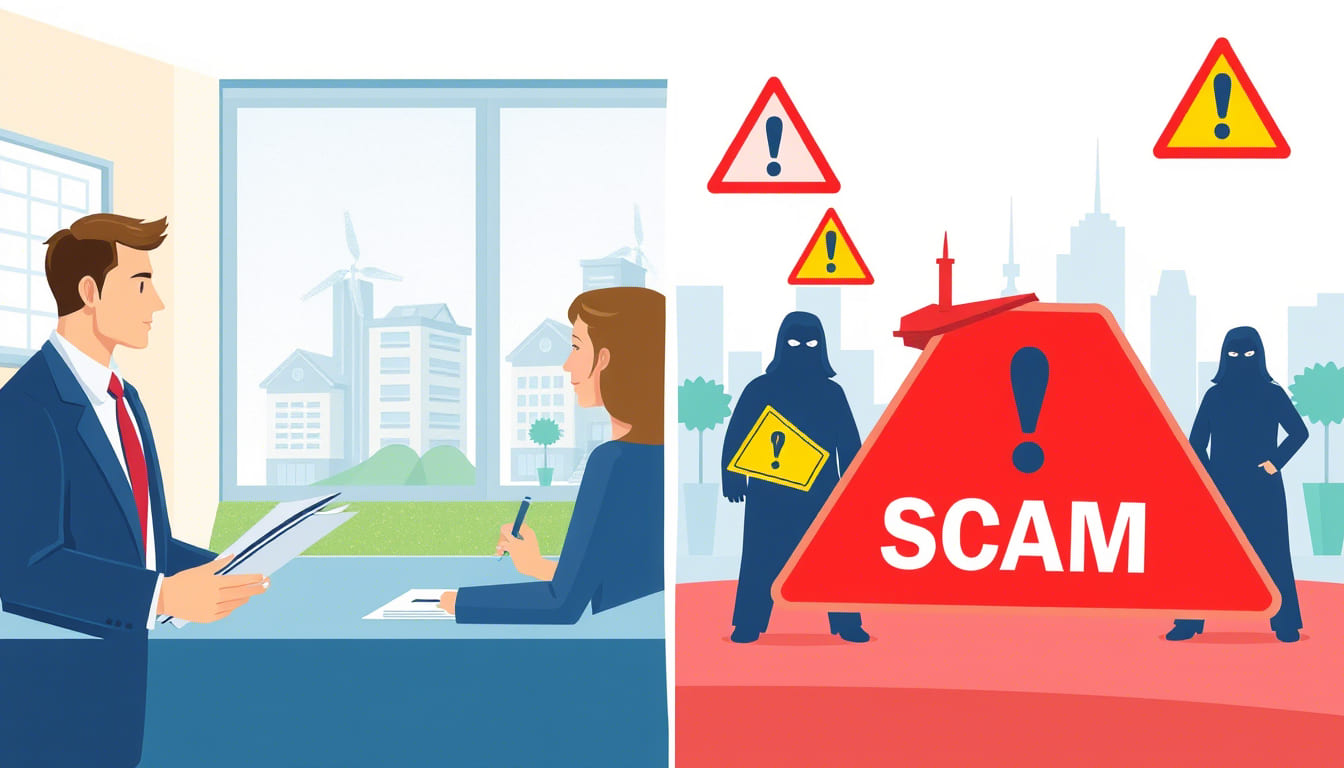Learn to identify and avoid the most common property scams in the UAE real estate market, with expert guidance on protecting your investment and recognizing legitimate opportunities in a rapidly growing market.
While the UAE maintains one of the world’s most regulated and secure real estate markets, the rapid growth and international nature of the property sector can attract fraudulent operators targeting unsuspecting investors. Understanding common scams and protective measures is essential for safeguarding your real estate investments and ensuring successful property transactions.
Off-Plan Property Scams
One of the most prevalent scams involves fraudulent off-plan developments where criminals pose as legitimate developers or sales agents. These scams typically offer properties at below-market prices in developments that either don’t exist or aren’t authorized for construction.
Protect yourself by verifying developer credentials through the Dubai Land Department or relevant emirate authorities. Legitimate developers will have proper licenses, established track records, and transparent documentation. Never pay deposits to individuals or unverified companies, regardless of the apparent urgency or discount offered.
Fake Property Listings and Rental Scams
Fraudsters often create attractive property listings using photos from legitimate developments, offering rental or purchase opportunities at suspiciously low prices. These scams typically involve requests for advance payments, security deposits, or documentation fees before viewing the property.
Always insist on physical property viewings and verify ownership documents through official channels. Legitimate landlords and sellers will provide proper identification, ownership certificates, and allow thorough property inspection before any payment discussions.
Investment Scheme Frauds
Sophisticated scams target investors with promises of guaranteed returns, exclusive investment opportunities, or secret property deals not available to the general public. These schemes often involve pressure tactics, limited-time offers, and requests for large upfront payments.
Legitimate real estate investments carry inherent risks and never guarantee specific returns. Be cautious of any investment opportunity that seems too good to be true or requires immediate payment without proper due diligence time.
Documentation and Title Fraud
Some scams involve forged property documents, fake ownership certificates, or fraudulent title transfers. These sophisticated frauds can be difficult to detect without proper verification through official channels.
Always verify property documents through the Dubai Land Department or relevant emirate land registry. Use qualified legal professionals for document review and ensure all transactions are conducted through licensed real estate agents and registered law firms.
Unlicensed Agent Operations
Fraudulent operators often pose as licensed real estate agents or represent established agencies without proper authorization. These individuals may collect deposits, commissions, or fees for services they cannot legally provide.
Verify agent credentials through the Dubai Real Estate Regulatory Agency (RERA) or relevant emirate licensing authorities. Licensed agents will provide official identification and work for registered brokerages with verifiable business licenses.
Virtual Property and Non-Existent Developments
Some scams involve the sale of properties that exist only in renderings or marketing materials, with no actual development planned or approved. These frauds target international investors who cannot easily verify property existence.
Always conduct independent verification of development approvals, construction permits, and actual property existence. Visit properties in person or engage trusted local representatives to verify physical existence and development progress.
Wire Transfer and Payment Frauds
Fraudsters may hijack legitimate property transactions by intercepting communications and providing false banking details for deposits or final payments. This type of fraud has become more sophisticated with email hacking and phishing techniques.
Always verify payment instructions through multiple communication channels and directly with verified representatives. Use secure payment methods and maintain detailed records of all financial transactions.
Industry Statistics
- Fraud Prevention Success: UAE authorities prevented AED 2.3 billion in property fraud attempts in 2024, with 98% of reported scams being detected before financial losses occurred (UAE Central Bank Financial Crimes Unit, 2024).
- Licensing Enforcement: Over 1,200 unlicensed real estate operators were identified and shut down in 2024, protecting consumers from fraudulent activities (Dubai Real Estate Regulatory Agency, 2024).
- Consumer Protection: 92% of property fraud cases involved international investors unfamiliar with UAE regulatory systems, highlighting the importance of local legal representation (UAE Ministry of Justice Consumer Protection Report, 2024).
- Market Security: The UAE’s real estate fraud rate of 0.03% is among the lowest globally, significantly below international averages of 0.15-0.25% (International Real Estate Security Institute, 2024).



